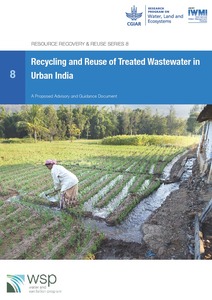Business models for fecal sludge management
On-site sanitation systems, such as septic tanks and pit latrines, are the predominant feature across rural and urban areas in most developing countries. However, their management is one of the most neglected sanitation challenges. While under the Millennium Development Goals (MDGs), the set-up of toilet systems received the most attention, business models for the sanitation service chain, including pit desludging, sludge transport, treatment and disposal or resource recovery, are only emerging.







